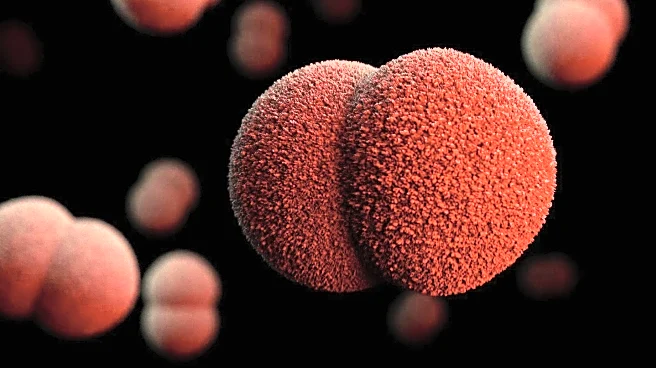What's Happening?
A research team led by Professor Eijiro Miyako at the Japan Advanced Institute of Science and Technology has developed a new bacterial therapy for cancer treatment that does not rely on the immune system. This therapy, known as AUN, uses two bacterial species,
Proteus mirabilis and Rhodopseudomonas palustris, to target and destroy cancer cells. The therapy has shown effectiveness in both animal and human models, even when immune function is impaired. The findings, published in Nature Biomedical Engineering, mark a significant advancement in cancer treatment, offering a new option for patients with weakened immune systems.
Why It's Important?
The development of AUN therapy represents a breakthrough in cancer treatment, particularly for patients whose immune systems are compromised by chemotherapy or radiotherapy. Traditional immunotherapies depend heavily on the immune system, limiting their effectiveness for these patients. AUN's ability to function independently of immune response could revolutionize cancer care, providing a viable alternative where conventional treatments fall short. This innovation could lead to improved outcomes and expanded treatment options for a significant portion of cancer patients.
What's Next?
Professor Miyako and his team are preparing to launch a startup to advance the AUN technology, with plans to begin clinical trials within six years. This initiative aims to bring the therapy to market, potentially transforming cancer treatment protocols and offering new hope to patients worldwide. The research community will closely monitor these developments, as successful clinical trials could lead to widespread adoption of immune-independent cancer therapies.

















